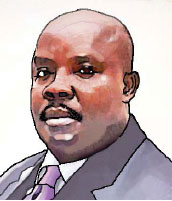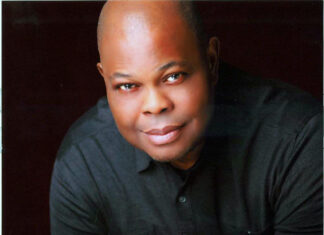Last Friday, July 29, made it exactly 50 years that Nigeria lost two of its illustrious sons – General Johnson Thomas Umunnakwe Aguiyi-Ironsi and Colonel Francis Adekunle Fajuyi – in what has come to be accepted as a counter-coup, masterminded by mainly Northern army officers on July 29, 1966.
At the time of their assassination, the two held significant positions in the country’s military and political leadership. While Aguiyi-Ironsi was the Head of State, Fajuyi was the Military Governor of the then Western Region.
Various accounts of the reasons and circumstances of their assassination have been rendered by those that carried out the acts and others that claim knowledge of what transpired, that we may not really bother ourselves in repeating the details here.
But what has not been adequately captured is the volume of lessons, if any, that has been learnt from the supreme sacrifice that the two made to keep the country one.
It is also not known the extent successive administrations in the land have gone in giving the fallen heroes their due in terms of recognition and reputation. It is however certain that if any effort had been spent in showing respect to the ideal they pursued and lost their lives for, that would have been largely marginal, given the way we treat our own in this country.
By the time Aguiyi-Ironsi and Fajuyi were felled, they had the option of playing the role of Nero, the Roman Emperor who fiddled along while the empire was on fire. By our standards as well as their ranks and positions, they could be said to be comfortable. Both were also, not in any way, fingered in the earlier January coup that witnessed heavy casualties among politicians and military officers of Northern and Western extractions.
They were only called upon to intervene to steady the ship of the Nigerian state that had clearly gone adrift. In the six months that they held the fort in their various duty posts, Aguiyi-Ironsi and Fajuyi, for whatever anybody could hold against them, rose to the occasion in discharging their tasks.
Though there may have been mistakes in going about their briefs, these could have been essentially errors of judgement and not actions or inactions borne out of bad faith. But in line with the confusion of the day, they were forced to spill their blood.
Bad as that was, particularly for their families and acquaintances, in a system that is desirous of nation-building, that would not have counted as too much of a sacrifice. History is replete with great men and women who were martyred for noble causes. It is, perhaps, in this instance that the saying revolution is watered by the blood of men finds relevance.
But 50 years after the two and other bright officers and civilians were wasted, the jury is still out on whether Nigeria has learnt any lesson from the exercise. Of course, it may be convenient to argue that at some levels, progress may have been recorded in material terms. The country can also be said to have attained structural advancement from its four-region setting to the current 36-state arrangement.
But at the heart of the matter is that in juxtaposition with the physical advancement of Nigeria in structural terms are the widening fault lines that have made nonsense of its size. Consequently, the factors of space and population, which Nigeria could have leveraged on to explore and harness its innate potentials, are turning out its nemeses.
From Aguiyi-Ironsi’s unification decree, which divided the country into 34 units – the major reason cited for his assassination, Nigeria has been split into 36 states, with many of the entities barely existing on monthly hand-out from the federal government.
Aguiyi-Ironsi could have carried on with the sordid situation he met on the ground when the reins of power were thrown on him. If he had, perhaps, his assailants who, events later indicated, were solely driven by sheer jealousy and callous vengeance, may not have had much reasons for embarking on their odious action against him.
Fajuyi, in similar stead, could have played along. In a system that increasingly appears to reward perfidy in place of hardwork, playing along could, perhaps, have earned him career progression and protection. Given the circumstances of the day, he had the option of surrendering Aguiyi-Ironsi, his guest, to the rampaging soldiers as bargaining chip to hold on to his job as governor. But he chose the path of loyalty and integrity.
The story of a palm wine tapper who witnessed the sordid drama leading to their assassination is yet to be faulted. It spoke on how Fajuyi repeatedly rushed between the murderous soldiers and Aguiyi-Ironsi in a bid to shield the latter from being killed. He was said to have made the intervention many times, so much that the killers were frustrated and angrily pumped hot lead into the two hostages. And Fajuyi died a hero, a true friend, a great officer and a patriot.
Ademola Adegbamigbe, a thoroughbred colleague and Editor of PM News, who did a great piece on “Adekunle Fajuyi: 50 Years After”, painted a graphic picture of how the late Colonel chose a heroic death over perfidious existence.
He wrote: “How could he (Fajuyi) stand at an akimbo while his guest (not to even talk of his supreme commander) was to be killed under his roof? He refused. It would have given rise to Yoruba, Igbo suspicion and everlasting hatred woven into a conspiracy theory. Fajuyi jumped on the open Land Rover conveying the victim, Aguiyi-Ironsi, even as the soldiers barked ogogoro and alcohol-reeking orders at him to stay away from the drama. He forced himself into the vehicle as the murderers drove away with him and his guest, their real target.”
Adegbamigbe is correct. I am yet to imagine the level of distrust the Yoruba-Igbo relations would have been further subjected to, if Fajuyi had not made the unusual sacrifice.
In a country that truly proclaims that the labour of its past heroes shall never be in vain, the template of brotherliness established by Aguiyi-Ironsi and Fajuyi should be adopted by all and imparted on the younger generation. It is only in this regard that Nigeria would make a genuine start in forgetting its ugly past. It is also in this spirit that the blood of these gentlemen and their compatriots lost in the subsequent civil war would not have been wasted. Anything to the contrary, simply, begs the question.

- Advertisement -
- Advertisement -
Must Read
Why I write and why you should read
Why I write and why you should read
By Okey Anueyiagu
A dramatic expansion of my...










